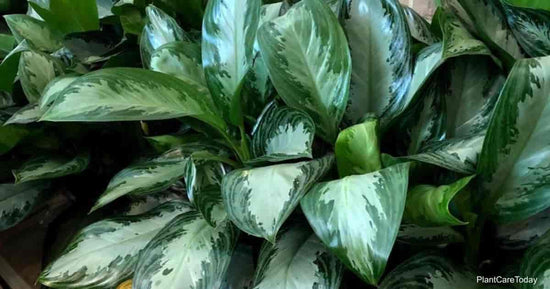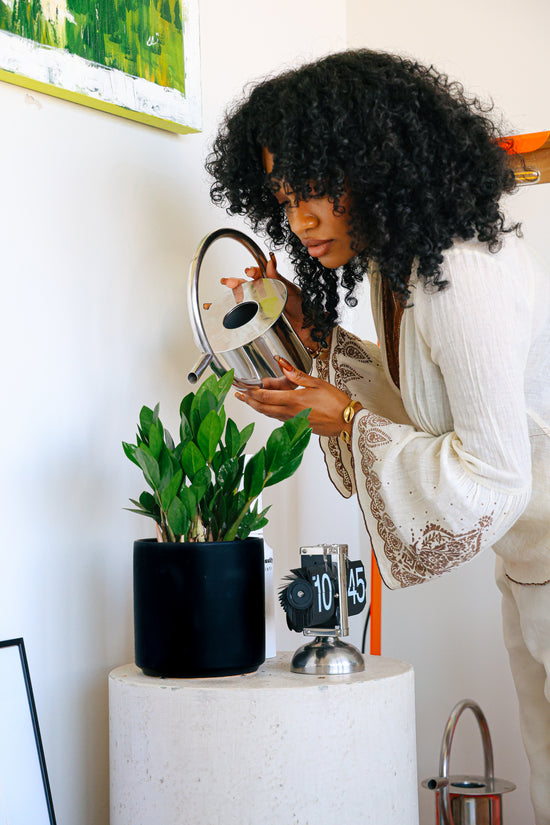In the hustle and bustle of daily life, it's easy to overlook the simple yet profound act of self-care. Just as our beloved houseplants need regular watering to thrive, we too require consistent nourishment to flourish. The process of caring for plants offers a beautiful metaphor for tending to our own well-being. By drawing parallels between the needs of our plants and our personal self-care routines, we can uncover valuable insights into how to live a more balanced and fulfilling life.
Consistency is Key
Plants need a regular watering schedule to maintain their health. Too much water can lead to root rot, while too little can cause them to wither. Similarly, we thrive on consistency. Establishing a daily routine that includes time for relaxation, exercise, and proper nutrition can help us maintain our physical and mental health. Just as we wouldn't neglect our plants for days on end, we shouldn't neglect our own needs. Consistency in self-care practices is essential for long-term well-being.
Listen to Your Needs
Every plant has unique watering requirements based on its species, environment, and growth stage. A cactus might need water once a month, while a fern may need it every few days. Likewise, our personal needs can vary greatly from person to person and even change over time. It's important to listen to our bodies and minds, recognizing when we need rest, social interaction, or solitude. By being attuned to our needs, we can provide ourselves with the right kind of nourishment at the right time.
Quality Matters
The quality of water we give our plants can significantly impact their health. Using distilled or rainwater can prevent the buildup of harmful minerals that tap water might introduce. Similarly, the quality of what we consume—whether it’s food, media, or social interactions—affects our overall well-being. Choosing nutritious foods, engaging in positive activities, and surrounding ourselves with supportive people are ways to ensure we're "watering" ourselves with high-quality nourishment.
Creating a Supportive Environment
Plants thrive in environments that support their growth, which includes the right soil, light, and humidity levels. For us, a supportive environment means creating spaces that promote relaxation and joy. This might involve decluttering our living spaces, incorporating elements of nature, or designating areas for specific activities like reading, yoga, or meditation. Just as we carefully place our plants in optimal conditions, we should curate our surroundings to enhance our own growth and happiness.
Patience and Growth
Growth takes time, both for plants and ourselves. We may not see immediate results from our self-care efforts, just as a newly watered plant doesn’t instantly sprout new leaves. Patience is essential. By nurturing ourselves consistently, we gradually build resilience and strength. Over time, we’ll notice the positive effects of our efforts, much like the slow but steady growth of a well-cared-for plant.
Celebrating Small Victories
Every new leaf or bloom on a plant is a cause for celebration. These small victories are signs of health and progress. In our own lives, it's important to recognize and celebrate our achievements, no matter how minor they may seem. Whether it's finishing a book, completing a workout, or simply taking a moment to relax, acknowledging these victories reinforces our commitment to self-care and motivates us to continue nurturing ourselves.
In conclusion, the act of watering our plants serves as a powerful metaphor for self-care. By establishing consistency, listening to our needs, prioritizing quality, creating supportive environments, exercising patience, and celebrating small victories, we can ensure that both our plants and ourselves thrive. As we care for our leafy companions, let us be reminded of the importance of also tending to our own well-being, nurturing the growth that leads to a healthier, happier life.





